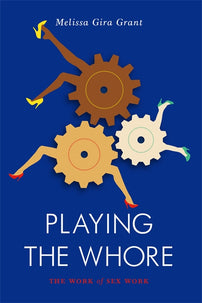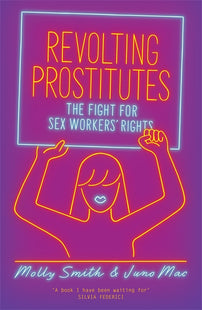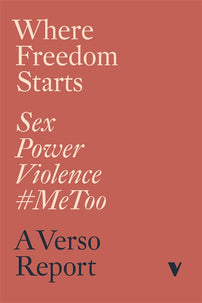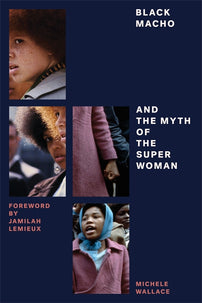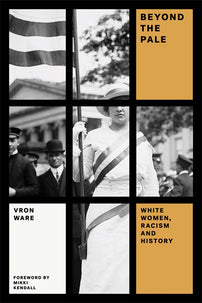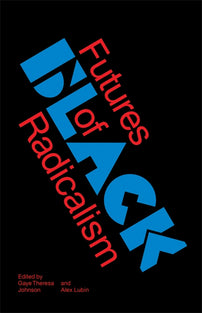Racialized Erotic Capital and the New York City Strippers' Strike: An Interview with Siobhan Brooks
Sociologist Siobhan Brooks discusses the New York City Strippers' Strike, her experience organizing the Lusty Lady, and racism in sex work.
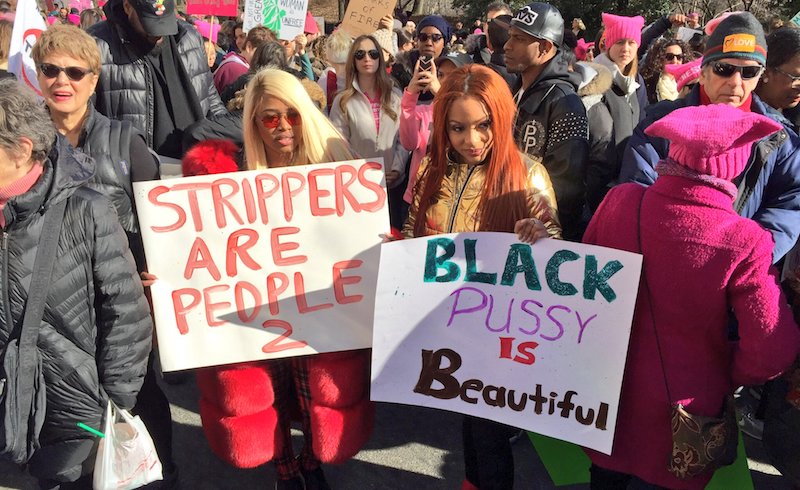
Strippers in New York City went on strike in November 2017, claiming “bottle girls” or bartenders were stealing their tips and managers were looking the other way. The strippers are mostly black women while the bartenders are white and Latina. Since then, the strike has expanded into a nationwide movement after it gained the attention of the International Women’s Strike USA and joined forces with the Women’s March.
New York’s race and class divisions are materialized in the distinction between the city’s upscale and urban strip clubs. Because urban clubs don’t guarantee safe working conditions for strippers, make less money, and are now threatened by gentrification, many strippers have little alternative but to work at upscale clubs. However, club managers are increasingly hiring “bartenders” — Instagram-famous women who work behind the bar in scanty attire — because they believe they’ll bring in more profit than the strippers.
“The dancers used to be the most respected women in the club, and now it’s like the dancers are at the bottom of the barrel,” Gizelle Marie, a Bronx native and one of the strike’s core organizers, told the Washington Post. “And the dark skinned dancers are all the way at the bottom of the barrel.”
Marie led a cohort of strippers in the Women’s March in January and marched with sex workers in Las Vegas. While the impact of the strike is still ongoing, powerful sex worker-led organizing all around America has trailed the movement. In February, strippers marched in New Orleans against police raids of strip clubs before Mardi Gras. Recently, hundreds of people protested in Oakland against a new federal law that places new regulations on sex work. Not yet a year old, the strippers’ strike targets the racialized division of labor in the sex industry — a pervasive yet scarcely investigated phenomenon.
In 1996, Siobhan Brooks started working at the Lusty Lady, a peep show establishment in San Francisco. Brooks was one of three black women who worked at the strip club. She noticed that she and her black coworkers were barred from the VIP room, where a dancer could make up to $60 an hour. Brooks filed a complaint about racial discrimination in the workplace, and helped spark a movement that led to the first unionized strip club in the US.
Brooks went on to become a writer and researcher of sex work and gender studies, publishing Unequal Desires: Race and Erotic Capital in the Stripping Industry in 2010. The first of its kind, the study examined how race and racism shape labor and desirability in the sex industry. Brooks utilized the concept of racialized erotic capital to reveal how the labor of sex workers of color was exploited in strip clubs.
In November 2017 I spoke with Brooks about her experience at the Lusty Lady, the New York City strippers’ strike today, and what it means to be a woman of color in the sex work industry.
When it comes to the New York City’s stripper strike, what exactly is at the heart of their grievances?
With the strippers, it’s a matter of segregation based on race and job status. The bartenders are the ones that are lighter [skinned]. They’re the ones that make more money than the actual dancers. I think the grievances are that the dancers need to organize to make money on par with bartenders. But the way the club owners have it, they’re competing against each other for those tips, even though they’re different job categories. [It’s] based on race and skin color and hair texture and such.
It’s really hard for strippers to unionize, because unlike most workers, they’re not employees. That makes it difficult to form a union, because legally they’re not eligible to have a union.
Right, because they’re contractors?
Yeah, they’re independent contractors. When I was a stripper, and I worked at the Lusty Lady, I was in a unique situation because we were some of the few exotic dancers that legally had an employee status. We got a paycheck every week, we got taxes taken out of it, and [that made it] easier for us to organize.
That’s different from most strippers like the ones in New York, they’re independent contractors. They actually have to pay to go to work. You work there and pay a stage fee. And they don’t want to pay them health insurance for that reason.
The racialized erotic capital works to exploit mostly black women and darker-skinned women, so they are only relegated to work in the lowest strata of the club, where you make the least money.
You speak about erotic capital in your book. Can you explain what that is?
I think when we look at capitalism, we know for instance that race and racism are part of how people are economically exploited. But I think what is less researched is what I call racialized erotic capital. Based on how attractive someone is — skin color, weight, hair texture — they’re positioned differently in the economic strata.
With black women, we know in the marriage market, particularly for heterosexual black women, there are a lot of complaints about how they’re not chosen as marriage partners. And then there are economic ramifications for black women who are looking for marriage partners because they’re at the bottom of the dating scale. That would be an example of racialized erotic capital around dating and marriage selection.
I looked at how strippers in exotic dance clubs are positioned differently than white women based on how they look. And how you look has economic ramifications for where you’re placed within capitalism and even for life expectancy.
And how much is class and gentrification related to this?
I think that’s a really good point. You definitely saw this in New York with [Rudy] Giuliani. The whole zoning laws were the result of gentrification in Times Square, which used to be seedier, particularly in the 80s when it had more strip clubs.
The laws moved the clubs further out in the city, and now they have zoning laws where [strip clubs] can only be 300 feet from schools, churches or other buildings to isolate it. When they’re isolated, abuse and worker exploitation can happen. People go far to work there, people go far as patrons. And it mirrors the segregation of communities of color when they get pushed out of very key local spaces and cities.
In the Bronx, for example, when I was doing research for my book, what I found fascinating was the strip club I had researched was in the neighborhood, where there are projects and food deserts and all the problems you have when gentrification happens to push communities out. The strippers felt that. That’s the right environment for people to go in there and feel, oh, nothing’s really gonna happen to me if I touch women and harass then.
And when it comes to this bartender phenomenon, did that exist when you were working at the Lusty Lady?
No, and the reason why is because we were fully nude and you cannot have alcohol in full nudity. So we didn’t have that issue in terms of a different job description competing with dancers. But we did have an issue within the club of dancer status, of who is going to get into the VIP room. Or what we used to call the private pleasures room. And that was very much based on race. And in my research, I’ve seen that reproduced in other clubs, where the VIP room or the champagne room — they have different names for them — that’s where you will make the most money. That is your money-maker. You can make $300 or more entertaining men in a more private space. But most of the time, black women are kept out of those opportunities.
And how pervasive exactly is that kind of racial inequality within the sex industry?
I think it’s almost ingrained. I think it’s part of the fabric of how the sex industry even functions. Even if you’re looking at phone sex operators where you don’t see anybody, but you have the fantasy of who you’re talking to, most people don’t request black women. So you have black women working on the phone, but there are other races. Even at that level where you don’t see anyone, there’s the racialization of capital happening in terms of who people are requesting.
That’s pervasive in pornography, both video and print. If you look at a lot of pornography marketed for black women, it’s very racialized, it’s very circa Lil Kim. And that’s not to say there’s anything wrong with Lil Kim per se. But it is a problem when that’s the only avenue somebody can perform in, whereas white women have different options about what kind of performance they can embody. I think that’s all very pervasive, and it functions in a way that keeps black women marginal.
If we treat sex work as a job, what do you think the importance of labor rights and unionizing is for sex workers?
I think sex workers have a lot to gain from being legally recognized as workers. Obviously, there’s a lot of discussion around decriminalization of prostitution, which I support, especially with the economy. Sex workers are an extension of the service sector. And a lot of women of color and immigrant women work in the service sector too. That tends to be the lowest-paid sector, and it’s the most female-based sector. Sex workers have a lot to gain by joining larger labor movements to get basic labor rights.
And what was your experience organizing in the Lusty Lady, the first unionized strip club in the U. S.?
My experience was complicated. On the one hand, I was very much for the union and helped [organize] for that. We had very few black women at the club at the time, and we were being discriminated against in the VIP room, and also the stage. You could only have one black woman on stage at a time, which limited the number of shifts we could have. For the white women, they rallied around people videotaping us without our permission. They didn’t see that the race issue was important and connected to that.
It didn’t always feel like a united front. It felt like this was their issue, this was the issue, let’s get the union. And the race issue was kind of a footnote, and I always had to fight to make sure that footnote was integrated into our union work. The efforts did pay off because after we were unionized, there was an effort to hire more women of color, particularly black women, and that did happen.
But then the culture didn’t really change. A lot of the black women that were hired didn’t feel comfortable. The white women didn’t always make them feel comfortable. [The black women] left, and there were complaints about gangster rap when they wanted to play rap on the jukebox and stuff.
But I’m glad that at least from a legal standpoint, black women had more of an opportunity to work there. It was a good experience, and I felt I was successful in putting women of color on the map, because we were overlooked. Particularly in the 90s, the sex worker movement, as we were calling it, was very white, and that was the image of it. And people didn’t really understand the unique issues women of color faced.
There are feminists and people who claim to care for sex workers, but who say the profession itself should be abolished, whether it’s through criminalization or different means. What exactly is your opinion on that? Do you think abolishing sex work would be conducive for sex workers at all?
No. Because it would still exist. And it would just exist illegally, but it would still be there. I think if we’re really concerned about the rights of women, we would understand that whether you agree with it or not, women occupy different jobs for different reasons. For instance, we know a lot of trans women of color are in the sex industry. How would it help them to abolish the sex industry when they can’t get jobs anywhere else?
So are you going to create jobs, are you going to be creating housing? I think we assume that women have more choices than they actually do. And I also think that some women want to be in sex work even if they do have other options, and that should be fine as well. I try not to engage in this debate because it doesn’t really have a lot to do with women of color. But I think the question of that debate — is sex work good, is sex work bad? — overlooks women of color on both fronts. The whole sex positive front overlooks the racism of the industry, and then the whole sex work is bad for women camp overlooks the economic situations that a lot of women are in.
So I think that it really is around choices. Creating choices for women, and if that’s one of the choices women choose to do, then it needs to be safe. But if they’re doing it and they really feel like there’s no choice, then how do we make other choices available? It’s something these feminists can’t seem to answer.
Would you think of sex work as survival work?
I think for some, but I wouldn’t say sex work in general is that. Like I wasn’t in sex work for survival. For some women, it is survival sex work. But I don’t think one can make the assumption that if somebody is doing sex work, it’s always survival.
Something about the bartenders that strikes me is how some of them are famous on Instagram, and I remember in your book, you talked about how the different strip clubs you studied did online marketing. How do you think social media has affected the sex work industry in the past few years, especially as it becomes more and more a part of our daily lives?
I think that’s a really interesting question. One of the positive things about [social media] is that you can have more control over your image and what you’re marketing. And I think it can be a tool that some sex workers of color are using to promote themselves, and try and cut out the middle person, if you will, and get the profit. I think that’s a positive aspect of social media, like anything. Self-marketing. I see that not just with sex work but with a lot of businesses owned by people of color. You see that with music too. People trying to market themselves away from particular business entities that can exploit them.
But what I do wonder about is how much does the internet take business away from peep shows, where people do go in person? And I think I am concerned about that because those are still places that are needed, places of work. Not everybody is going to set up a webcam. Not everybody has the desire to do that. So I think it’s a catch-22. I think it’s a good marketing tool for some sex workers of color but then I also fear smaller clubs not being able to compete with some of the internet porn and marketing happening without any clubs.
And I think that’s kind of what happened with the Lusty Lady too. They couldn’t fully compete with the internet boom.
So why did the Lusty Lady close?
It’s for that reason. It’s in San Francisco, they could no longer afford the rent. And I think when it closed, it was sort of when a lot of sex work started to become more internet-based.
Do you think that issue materialized between the bartenders and strippers too? A lot of the women leading the strike are active on Instagram. But I think one of the reasons these bartenders are hired in the first place is because they’re internet or Instagram-famous in ways the strippers weren’t.
I think there definitely is a digital divide in sex work. And it forces us to ask, what are all the things needed to promote yourself online? And does everyone have that access?
It’s interesting that the bartenders are the ones that have the Instagram account. But then you also wonder, if you’re being exploited, does that force you to try and compete and have your own Instagram page?
And I have mixed feelings about it. Because it lets the owners off the hook for [failing to] create a physical space that’s safe for you to work in.
You talked a little bit about how a lot of sex workers don’t have union rights because they’re usually on contract. Are there any legal safeguards for keeping those managers accountable?
What a lot of exotic dancer organizations are advocating are more class action suits. This happened in San Francisco with some of the strippers I knew who were at other clubs.
For a class action suit, a group of dancers get together and basically prove that they should have been paid these wages that they were not, that they’re not getting particular safety care like health care, and they’re not provided a safe environment to work in. And [the employers] are violating health codes. That has been a successful way people get settlements, if they can win.
But that’s lengthy, as you can imagine. And not everyone can go through with that. Exotic dancers are still trying to figure out what’s the best way to deal with this issue if they can’t unionize.
Why did you work at the Lusty Lady?
I worked there because I was a Women Studies major, and I learned a lot of the women — they were mainly white — were working there. And I needed supplementary income. This is before student loans, so I didn’t have loans, but I had financial aid. I wasn’t really living at home at this time. And I had been a phone sex operator before, so it wasn’t a leap for me to do that. I remember somebody told me, it’s clean, it’s feminist, because I had stereotypes of what a strip club would be too. And they told me it’s women-owned. I looked, I liked what I saw, and I auditioned, and I got hired. And I really liked it. You can be erotic with yourself, you’re listening to your favorite songs all day. It wasn’t nine-to-five, and I’m not a nine-to-five person, I’ve never really had a nine-to-five job.
I liked meeting and hanging out with other women. I liked it. And most of the people at the time were in college, so there was that bond too. It was a job that was flexible with my schedule as a college student. That’s why I started. And I was there five years. I started when I was 22, and I ended at 27.
There was a lot of discrimination back then. It wasn’t like now when you can be like, “Oh, I’m gonna take a pole dancing class.” It was the equivalent of being gay. It was just like when you come out as gay, people are shocked, and they can’t understand how that can be. It was the same thing, but coming out as a stripper. I lost friends. My mom was horrified.
The union was, for lack of a better word, a respectability move for some of us too. And it made us look more respectable even though we were still dancing. You know, it was exciting, but it was risky. People were still losing custody of their kids when others found out they worked in places like that. It wasn’t like today where people can be more forthright. It was very stigmatized. Particularly, might I add, for women of color.
Why was it more stigmatized or differently stigmatized for women of color?
The short answer to that is our history. Whenever we talk about sex or sexuality for women of color, particularly black women, there’s always the rape narrative connected to slavery. And that’s true. That did happen in our history. But I think because that’s a trope, it makes it difficult for us to [unpack] sexuality in general in our communities because it’s always linked to oppression.
And I think there’s respectability politics in communities of color around sexuality, which is why we also have very different responses to LGBT identity as well. We have to shape how others see our race and part of that control is around sexuality. Obviously, there’s a lot of gendered [treatment] of women [of color], how we are supposed to behave. And it’s the [effect] of current stereotypes.
One of the things that made me angry about the sex worker movement was the assumption that if you’re in pornography [and the industry], you should sell. Because it’s sex, and sex always sells. I always had to remind them, no, not all sex sells equally because of racism.
The stereotypes about black women being hoochies and all that follow you when you go to work in strip clubs. Customers don’t want to see you and think you’re unattractive. And that’s why [black women] make less money. It’s really difficult for most women of color, but especially black women to be sex positive because of the racialized sexual trauma most of us have experienced.
How do you feel about seeing a strike led by black women for sex worker rights? Particularly when you had an opposite experience.
I feel like there’s a lot of promise. And I think it mirrors also the different leadership in general in our race movements. Black Lives Matter was started by three [black] women, two being queer, and that’s very revolutionary, especially when most of our race-based movements are marketed to be started by straight black men. So I think it’s a slightly different time. Even looking at things like gay marriage, LGBT issues are being spoken about more openly in our communities. Not always accepted, but at least spoken about.
I think it’s promising. And I think that what it shows me is just that people are fed up. Particularly younger generations are fed up. They don’t care if it’s respectable or not. They’re fed up, something’s wrong, they’re gonna do it. I like that they’re taking action.
Iman Sultan is a Pakistani-American writer and freelance journalist. Her writing and reporting interests include politics, culture, and community.
[book-strip index="1" style="display"]
